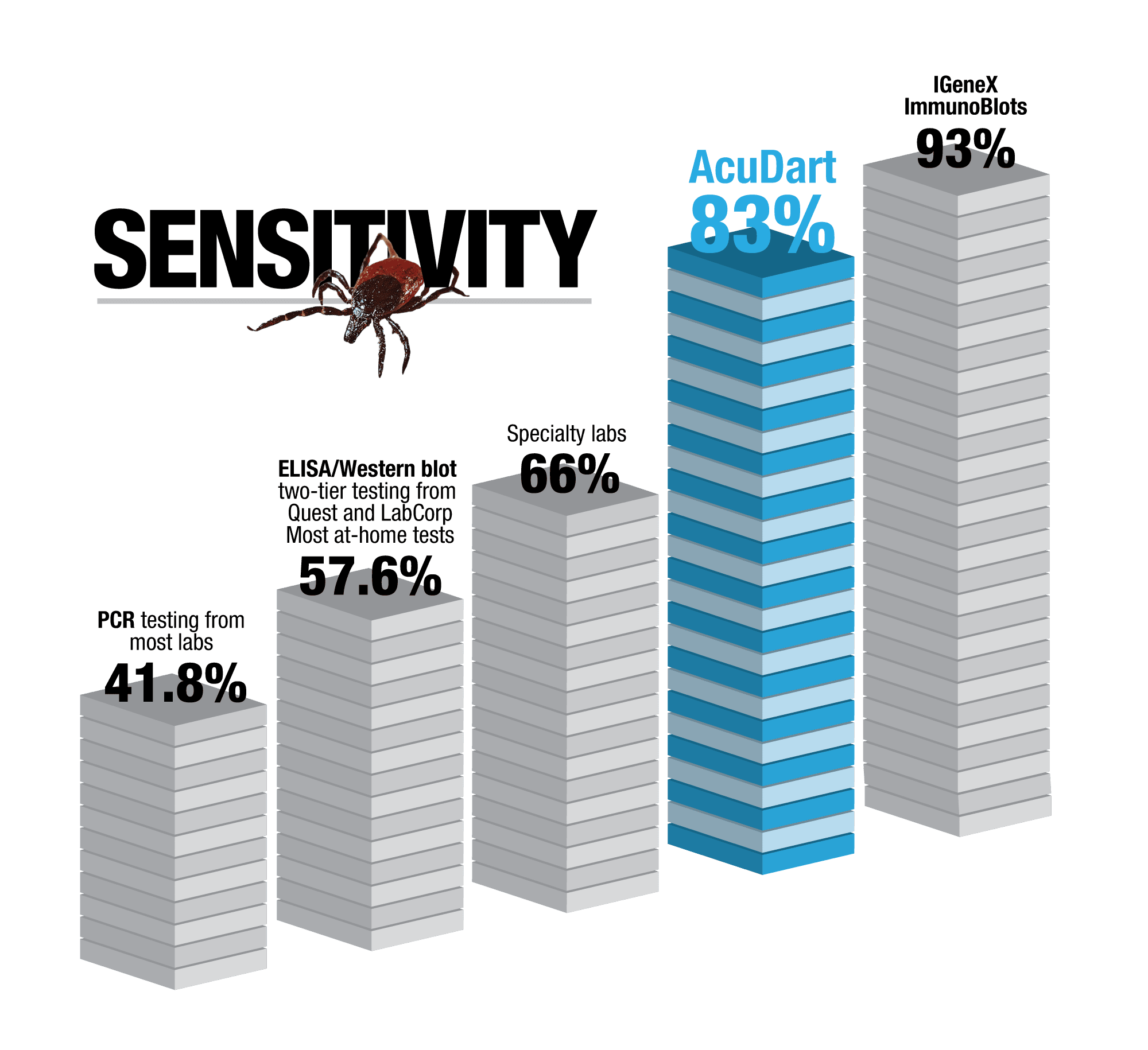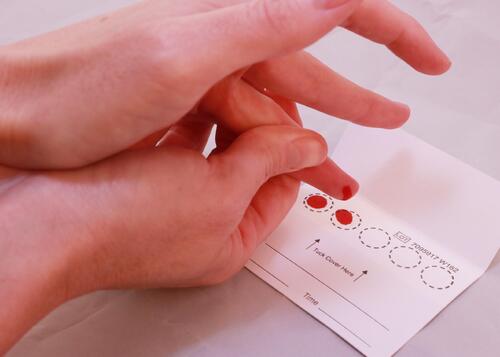What does the Tick-Borne Disease Test Panel detect, and how reliable is it?
How Our Tests Work
AcuDart Stands Tall
AcuDart Stands Tall

Collecting Your Blood

AcuDart tests detect antibodies to multiple species of Lyme Borrelia.
AcuDart tests detect antibodies to multiple species of TBRF Borrelia.
AcuDart tests detect antibodies to multiple species of Babesia.
AcuDart tests detect antibodies to multiple species of Bartonella.
Frequently asked questions
Title







